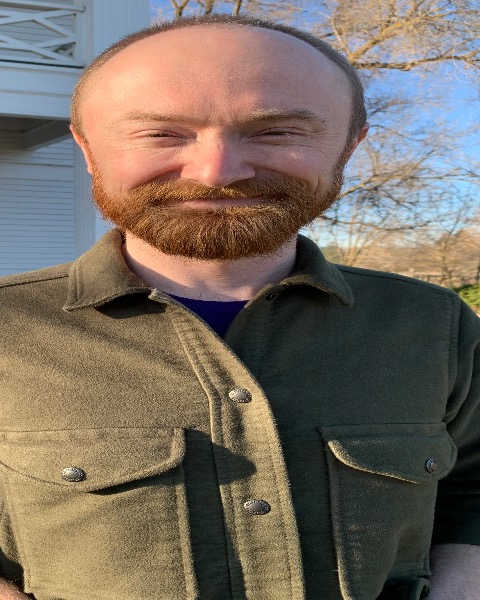Student outcomes
Research Paper
What is an Authentic Relationship?
Wednesday, October 25, 2023
2:00 PM - 3:15 PM CST
Location: Rechler

Joe Johnston, PhD
associate professor
Gonzaga University
Gonzaga University
Spokane, Washington, United States
Presenter(s)
Abstract: What is an “authentic relationship” in inherently-time-limited community-engaged learning experiences? I utilize the case of a CEL class, which offers the opportunity for college students to enjoy early morning walks to school with youth. I analyze student data from their relationship development journals looking for patterns. I aim to offer an initial investigation of what the critical community-engaged learning aspirational concept of authentic relationships looks like “on the ground.”
Narrative: Mitchell’s (2008) critical community-engagement model has been foundational to instructors and students’ efforts to enter into partnerships that are more explicitly focused on social justice for more than a decade. The three tenets (reducing power differentials, developing authentic relationships, social change orientation) are wonderful aspirations for students in their engagement during community-engaged experiences. And, yet, we need more dedicated analyses fleshing out what these concepts mean in practice.
As a starting point, this project asks: What is an authentic relationship? The present scholarship often discusses relationship building in dialectical terms—“transactional” vs. “authentic, “thick” vs. “thin”. But, what does “authentic” actually mean and look like for inherently-time-limited community-engaged learning experiences? Does relationship building look different between different dyads in the community-engaged learning partnership (community members, community partners, college students, instructors)? And, what are the strategies that college students employ to work towards developing authentic relationships—are they always utilizing “thick” engagement or are there moments where “thin” engagement actually demonstrates a deeper level of authenticity in the relationship?
To dig into these questions, I utilize the case of a community-engaged learning class, with a community program/partnership which provides the structure for relationships to develop: the walking school bus (WSB). The WSB offers the opportunity for college students to enjoy early morning walks to school with elementary school youth—learning about the neighborhoods through the eyes of the youth—and contributing to increased attendance and timeliness to school through the development of community. There is no official curriculum/content for the program. Instead, the goal is simply to enjoy a walk in the morning, breakfast thereafter at school, and develop community in the process.
The 25 college students enrolled in the course all take part in the WSB and the course material is built around the CEL experiences. This appears to be a clear example of a CEL partnership focused on authentic relationships.
And, yet, it is only a semester-long class. Winter weather limits the WSB program to six weeks for which the enrolled students volunteer 3 days a week for just less than 2 hours a day. What might we reasonably call “authenticity” given these time constraints? What does the continuum of attempts at authenticity look like? And, what are the strategies students utilize in the aspirational pursuit of authentic relationships?
I analyze data from students enrolled in a sociology of education class during the spring 2023 semester at Gonzaga University. I will inductively code the relationship development journals (and other assignments) looking for patterns. My goal is to detail these patterns—within the backdrop of the specific goals/practices of the CEL course—as an initial investigation of what the aspirational concept of authentic relationships looks like “on the ground.”
Narrative: Mitchell’s (2008) critical community-engagement model has been foundational to instructors and students’ efforts to enter into partnerships that are more explicitly focused on social justice for more than a decade. The three tenets (reducing power differentials, developing authentic relationships, social change orientation) are wonderful aspirations for students in their engagement during community-engaged experiences. And, yet, we need more dedicated analyses fleshing out what these concepts mean in practice.
As a starting point, this project asks: What is an authentic relationship? The present scholarship often discusses relationship building in dialectical terms—“transactional” vs. “authentic, “thick” vs. “thin”. But, what does “authentic” actually mean and look like for inherently-time-limited community-engaged learning experiences? Does relationship building look different between different dyads in the community-engaged learning partnership (community members, community partners, college students, instructors)? And, what are the strategies that college students employ to work towards developing authentic relationships—are they always utilizing “thick” engagement or are there moments where “thin” engagement actually demonstrates a deeper level of authenticity in the relationship?
To dig into these questions, I utilize the case of a community-engaged learning class, with a community program/partnership which provides the structure for relationships to develop: the walking school bus (WSB). The WSB offers the opportunity for college students to enjoy early morning walks to school with elementary school youth—learning about the neighborhoods through the eyes of the youth—and contributing to increased attendance and timeliness to school through the development of community. There is no official curriculum/content for the program. Instead, the goal is simply to enjoy a walk in the morning, breakfast thereafter at school, and develop community in the process.
The 25 college students enrolled in the course all take part in the WSB and the course material is built around the CEL experiences. This appears to be a clear example of a CEL partnership focused on authentic relationships.
And, yet, it is only a semester-long class. Winter weather limits the WSB program to six weeks for which the enrolled students volunteer 3 days a week for just less than 2 hours a day. What might we reasonably call “authenticity” given these time constraints? What does the continuum of attempts at authenticity look like? And, what are the strategies students utilize in the aspirational pursuit of authentic relationships?
I analyze data from students enrolled in a sociology of education class during the spring 2023 semester at Gonzaga University. I will inductively code the relationship development journals (and other assignments) looking for patterns. My goal is to detail these patterns—within the backdrop of the specific goals/practices of the CEL course—as an initial investigation of what the aspirational concept of authentic relationships looks like “on the ground.”

